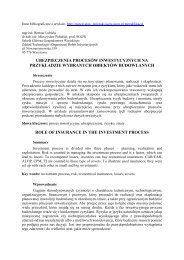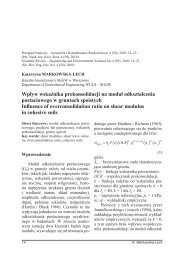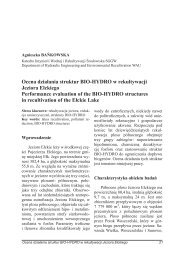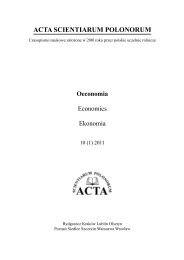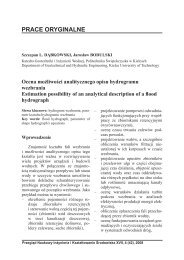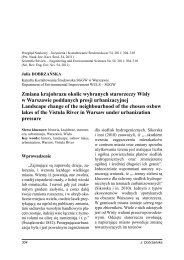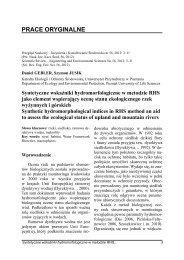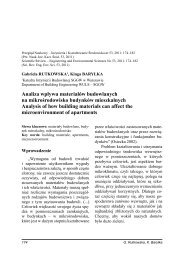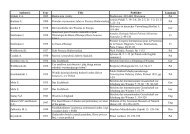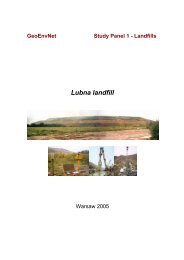Acta Scientiarum Oeconomia 9 (1)
Acta Scientiarum Oeconomia 9 (1)
Acta Scientiarum Oeconomia 9 (1)
You also want an ePaper? Increase the reach of your titles
YUMPU automatically turns print PDFs into web optimized ePapers that Google loves.
54<br />
M.A. Geheder, M.S. Moussa, E.R. Shnibesh, A.A. Yousef<br />
way towards the Barcelona objective. The three main goals of EU Mediterranean policy<br />
are set out in the Barcelona Declaration: The creation of an area of peace and stability,<br />
the improvement of mutual understanding among the peoples of the region including the<br />
development of an active civil society and the creation of an area of shared prosperity<br />
through sustainable and balanced economic and social development, and especially<br />
the gradual establishment of free trade between the EU and its partners, and among the<br />
partners themselves, until 2010. This process should be accompanied by substantial EU<br />
financial support to help partners dealing with economic transition and the resulting<br />
social, economic and environmental challenges.<br />
As regards trade integration, the latter goal of the Barcelona process is of particular<br />
importance, as here the explicit goal of an area of shared prosperity is spelled out.<br />
All Mediterranean non-EU countries have joined the Barcelona process, except<br />
Libya. Only in April 1999, following the suspension of UN sanctions, Libya acquired<br />
an observer status in the Barcelona Process. The country was invited to become a full<br />
member as soon as the UN Security Council sanctions have been definitively lifted and<br />
once Libya has accepted the full Barcelona ‘acquis’.<br />
Full integration into the Barcelona process is the first step towards new relations with<br />
the EU, which include the negotiation of an Association Agreement. If it is achieved<br />
and once there are contractual arrangements with the EU, participation in European<br />
Neigborhood Programme will allow further development of the EU’s relationship with<br />
Libya as for all other countries in the Barcelona process.<br />
MODEL SPECIFICATION<br />
Due to the importance of imports from the EU as the Libya’s main tradepartner, in<br />
providing the local market by its needs of various goods, and Libya’s strategy to diversify<br />
the sources of income, the goal here is to estimate Libya’s trade with The EU countries,<br />
which remained the main source of Libyan imports for more than two decades.<br />
The sensitivity of imports IEU to changes in:<br />
• GDPG is of particular interest for its role to determine the value of imports.<br />
• RER the exchange rate of the Libyan Dinar is an important factor, because willchange<br />
capital good import value over time when the exchange rate changes.<br />
• INF = indicates the price inflation, and any change, lead to a change in the value of<br />
imports.Consequently, we will measure the effect of those explanatory variables on<br />
the real quantity of imports from the EU (dependent variable). Thus, we assume that<br />
our model takes the following form:<br />
IEU = f (GDPG, RER, INF)<br />
Where:<br />
IEU is Libya’s real quantity of Capital good imports.<br />
GDPG is the growth in gross domestic economy.<br />
RER is the real bilateral exchange rate of the Libyan Dinar against US$.<br />
INF is the consumer price index.<br />
DUM is dummy variable.<br />
<strong>Acta</strong> Sci. Pol.




